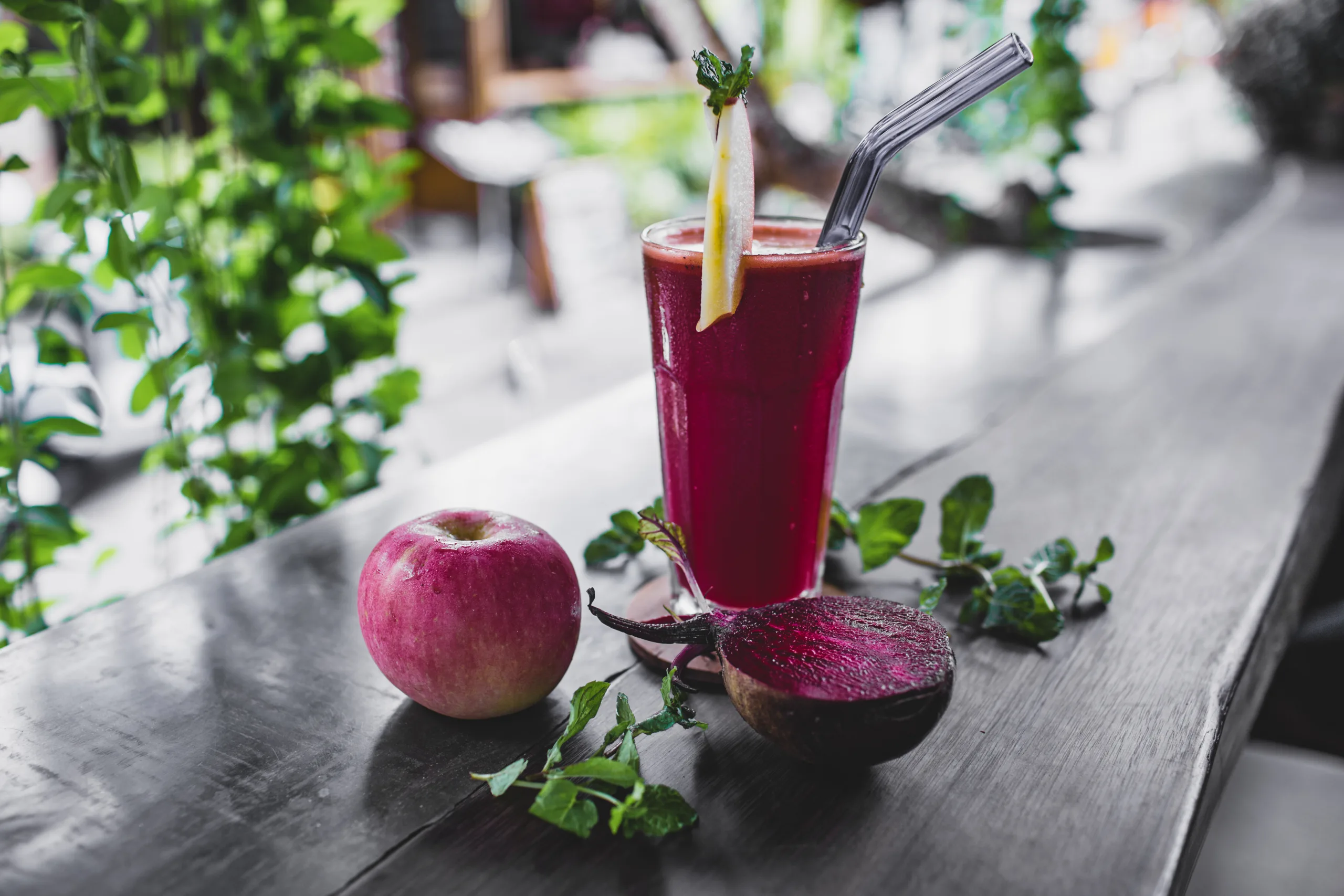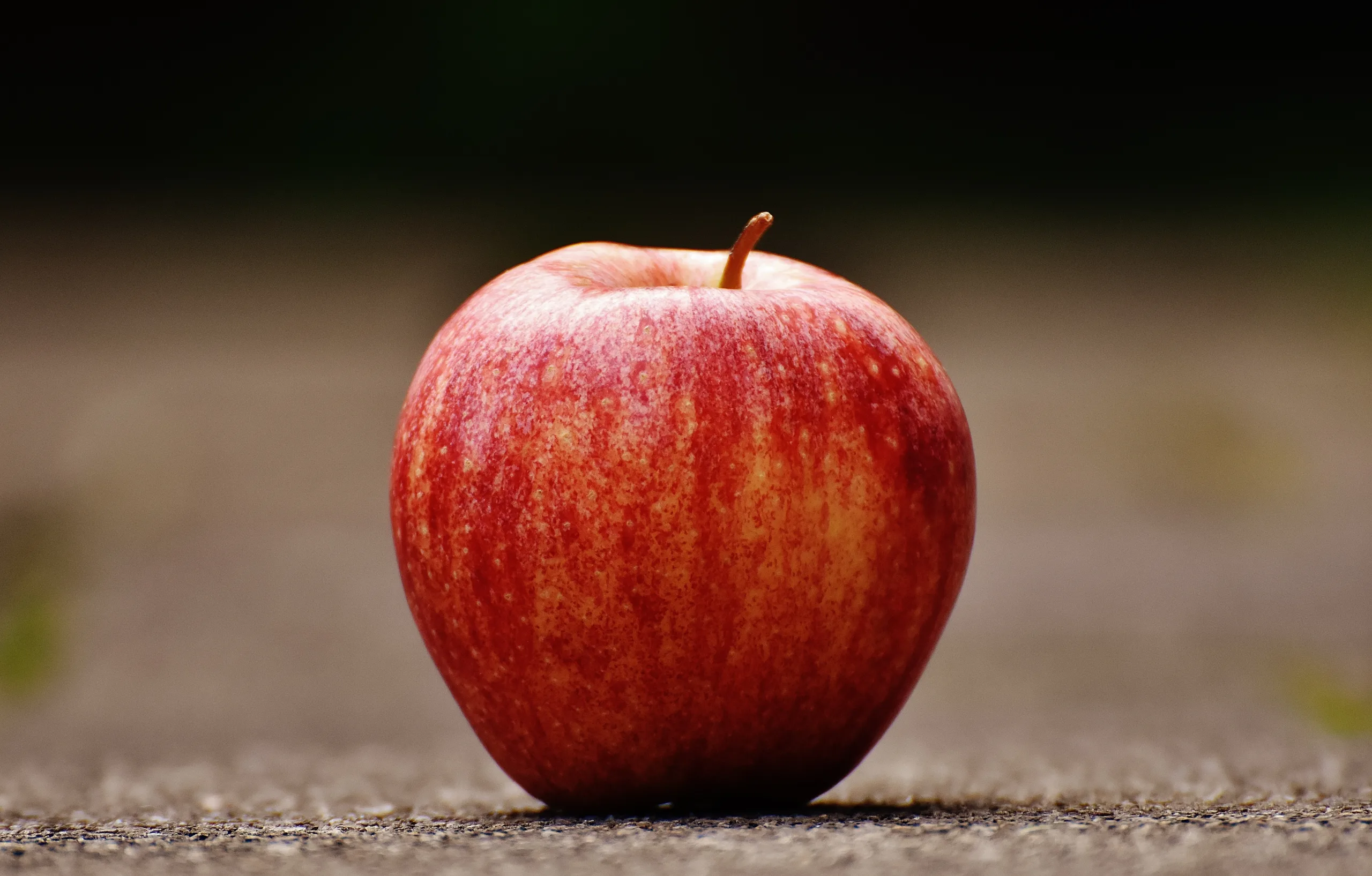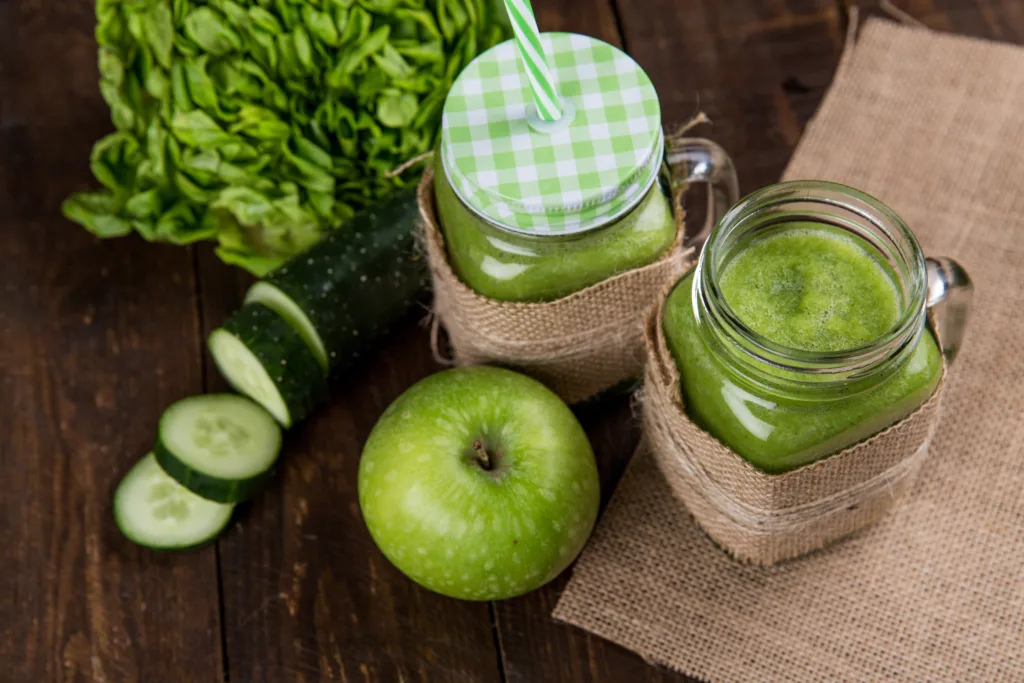Is apple juice low FODMAP? If you’re following the low FODMAP diet to manage your digestive symptoms, then you likely have this question. It can be hard to find healthy drinks that won’t trigger your symptoms, so it’s important to know which ones are safe to consume. This article will explain whether or not apple juice is a low FODMAP beverage and offer some alternatives if it isn’t.
FODMAP stands for Fermentable Oligosaccharides, Disaccharides, Monosaccharides and Polyols. It is a group of short-chain carbohydrates that can be difficult to digest for some people, causing digestive discomfort and other symptoms such as bloating and gas.
Are Apple Juices Low FODMAP?
Apple juices can be a great way to get the nutritional benefits of apples without having to eat them. However, for those with Irritable Bowel Syndrome (IBS) or other digestive disorders, it’s important to know whether the juices are low FODMAP. Fortunately, most apple juices are low FODMAP and can be safely consumed on a low FODMAP diet.
FODMAP stands for Fermentable Oligosaccharides, Disaccharides, Monosaccharides and Polyols – a group of carbohydrates found in many foods that can trigger digestive symptoms in some people. Foods that are high in these carbohydrates are often restricted when following a low FODMAP diet.
Apple juice is considered a low FODMAP food as long as it is made from apples only and does not contain any added high FODMAP ingredients such as honey or high fructose corn syrup. It’s important to read the ingredient label before consuming any juice or other food product to ensure it does not contain any hidden sources of FODMAPs.
In general, apple juice is safe for those following a low FODMAP diet in moderate amounts (1/2 cup or 125 ml). It’s best to drink the juice with other low-FODMAP foods and monitor your symptoms after consumption to make sure you don’t experience any adverse effects. If you do experience digestive discomfort after drinking apple juice, try reducing your portion size or avoiding it completely if necessary.
Overall, most apple juices are considered low FODMAP and can be enjoyed in moderation by those following this diet plan. Be sure to read the ingredient label before consuming and always listen to your body for signs of digestive distress.
How to Choose Low FODMAP Apple Juices?
When it comes to finding the right apple juice for your low FODMAP diet, there are a few things you need to consider. First, you’ll want to look for a juice that is free of any added sweeteners or artificial additives, as these can contain FODMAPs. You should also look for juices with a low sugar content, as this will help reduce the amount of FODMAPs present in the juice. Finally, you’ll want to look for juices that are certified organic and/or made from organic apples in order to ensure they contain no added chemicals or preservatives.
When shopping for low FODMAP apple juices, you’ll also want to check the labels carefully. Look for ingredients like fructose and sucrose, which are both high-FODMAP sweeteners. You should also avoid any juices that contain high fructose corn syrup (HFCS) or other added sweeteners like honey or agave nectar. If possible, try to find an unsweetened apple juice and add a small amount of natural sweetener like maple syrup or stevia if desired.
Click here to preview your posts with PRO themes ››
Finally, it’s important to remember that even though an apple juice may be labeled “low-FODMAP,” this doesn’t always mean it is actually low in FODMAPs. The best way to know if a juice is truly low in FODMAPs is by checking the nutrition label and looking at the sugar content. If the sugar content is less than 6 grams per serving size, then it’s likely safe for your diet.
Benefits of Drinking Apple Juice
Apple juice is a popular drink that is enjoyed by people of all ages. It has many health benefits that make it a great choice for those looking to improve their diets. Apple juice is packed with vitamins, minerals, and antioxidants that can help boost your overall health. It can also help protect against certain diseases and illnesses. Here are some of the benefits of drinking apple juice:
1. Heart Health: Drinking apple juice has been linked to improved heart health in several studies. The antioxidants present in apple juice can help reduce cholesterol levels and also decrease the risk of developing certain types of cardiovascular disease.
2. Immunity Boost: Apple juice contains high levels of vitamin C, which can help boost your immune system and fight off infections more effectively. Vitamin C also helps your body absorb other nutrients more efficiently, which can lead to better overall health.
3. Gut Health: Apple juice is a great way to promote healthy gut bacteria, as it contains both soluble and insoluble fibers that feed these beneficial microbes. This can help improve digestion and reduce constipation, as well as lowering the risk for certain types of cancers and other chronic diseases.
4. Weight Loss: Drinking apple juice can be a great way to aid in weight loss efforts, as it provides essential nutrients without containing any added sugars or artificial sweeteners that could otherwise increase calorie intake. Additionally, its high fiber content helps keep you feeling full for longer periods of time, helping you resist cravings and eat less overall.
Overall, drinking apple juice can be an excellent way to improve your overall health and wellbeing. Its abundance of vitamins, minerals, and antioxidants make it a great choice for those looking to get more nutrition into their diets without sacrificing flavor or indulging in sugary drinks.
Is It Safe to Drink Apple Juice with IBS?
IBS, or irritable bowel syndrome, is a common digestive disorder that can cause abdominal pain, bloating, and changes in bowel habits. Many people who suffer from IBS find that certain foods and drinks can make their symptoms worse. One of these is apple juice, which is high in fructose and can cause digestive problems for some people.
However, there is no evidence to suggest that drinking apple juice will cause IBS symptoms in all individuals. Some people may be able to tolerate it without any negative effects, while others may find that it causes them discomfort. If you’re not sure whether apple juice will affect your IBS symptoms, it’s best to consult with your doctor or dietitian for advice.
If you decide to try drinking apple juice with IBS, it’s important to do so in moderation. Start by having just a small amount and see how your body responds. If you don’t experience any adverse effects after a few days, then you may want to consider increasing the amount gradually over time. However, if you do experience any unpleasant symptoms such as bloating or abdominal pain after drinking apple juice, then it’s best to stop consuming it altogether.
Click here to preview your posts with PRO themes ››
It’s also important to remember that drinking too much apple juice can lead to health issues like weight gain and tooth decay. It should be consumed only in moderation as part of a balanced diet and should not replace other healthy foods like fruits and vegetables.
In conclusion, there is no definitive answer as to whether it’s safe to drink apple juice with IBS or not. Each individual must make the decision for themselves based on their own health needs and preferences. If you have any concerns about consuming apple juice with IBS, it’s best to consult with your doctor or dietitian for personalized advice on what’s best for your particular situation.

Potential Side Effects of Consuming Apple Juice
Consuming too much apple juice can have adverse effects on your health. Some of the potential side effects include an upset stomach, diarrhea, bloating, gas, nausea, and stomach cramps. In some cases, drinking too much apple juice can lead to an overgrowth of bacteria in the intestines and cause an infection known as pseudomembranous colitis. Additionally, apple juice contains large amounts of sugar which can lead to weight gain and tooth decay if consumed in excess.
Apple juice also contains high levels of acidity that can contribute to acid reflux or heartburn in some people. People who suffer from kidney stones should also limit their consumption of apple juice since it is high in oxalates which can increase the risk for stone formation. Lastly, some people may be sensitive to the preservatives found in bottled or processed apple juice and experience allergic reactions such as hives or difficulty breathing.
It is important to keep your consumption of apple juice under control to avoid any potential health risks. Drinking only moderate amounts of apple juice and following a balanced diet will help you maintain good health and avoid any adverse side effects associated with overconsumption.
Are There Any Alternatives to Drinking Apple Juice with IBS?
IBS, or irritable bowel syndrome, is a chronic condition that affects the digestive system. While there is no cure for IBS, many people find relief from the symptoms by avoiding foods that trigger their symptoms. For some people, this includes avoiding apple juice. Fortunately, there are a number of alternatives that can provide the same benefits as apple juice without triggering uncomfortable symptoms.
One alternative is to drink other types of fruit juices. Cranberry juice and pear juice are two popular options. Both juices are high in fiber and can help to ease digestive discomfort. Additionally, they also contain vitamins and minerals that can help to improve overall health.
Another option is to make smoothies with fresh fruits and vegetables. This allows you to get the nutritional benefits of fruits and vegetables without having to consume large amounts of sugar or artificial sweeteners, which can be triggers for IBS symptoms. You can also add supplements such as probiotics or digestive enzymes to your smoothie for added health benefits.
Herbal teas are a great way to get hydrated and provide some relief from IBS symptoms. Peppermint tea has been shown to have calming effects on the digestive system and can help reduce abdominal pain and bloating associated with IBS. Chamomile tea has also been linked with easing digestive discomfort, as well as helping reduce stress levels which can aggravate IBS symptoms.
Click here to preview your posts with PRO themes ››
Finally, water is always an option for those looking for an alternative to apple juice with IBS. Staying hydrated is important for overall health, but it’s especially important when dealing with digestive issues like IBS. Drinking plenty of water throughout the day will keep your body functioning properly and may even help reduce some of your symptoms over time.
For those looking for alternatives to drinking apple juice with IBS, there are a number of options available that can provide the same benefits without triggering their symptoms. From other types of fruit juices to smoothies and herbal teas, there are plenty of options available that can help ease digestive discomfort while still providing essential nutrients and hydration needed for good health.
Incorporating Low FODMAP Apple Juices into a Healthy Diet
Apple juice is a popular drink for many people, but for those following the low FODMAP diet, it can be difficult to find an apple juice that fits within their dietary restrictions. Fortunately, there are several options available to make it easier to include low FODMAP apple juices in a healthy diet.
The first step is to look for a juice that is made from an approved low FODMAP fruit. Most store-bought juices are made with high-FODMAP fruits like apples and oranges, so it’s important to find one that uses only low FODMAP fruits like pineapple or grapefruit. Additionally, many health food stores carry products like lemonade and limeade that are made with approved fruits and can be used as a base for making your own low FODMAP apple juice at home.
When shopping for store-bought juices, it’s important to check the ingredients list and nutrition facts label carefully. Many store-bought juices contain added sugar or sweeteners that may not be suitable for a low FODMAP diet. It’s also important to look out for added preservatives or artificial colors and flavors, as these can cause digestive upset in some people.
Once you have found a suitable store-bought juice or have made your own at home, it’s important to incorporate it into your diet in moderation. Low FODMAP apple juices can be enjoyed on their own as part of a snack, or they can be used as an ingredient in smoothies, sauces, marinades, dressings, and more. This will allow you to enjoy the flavor of apples without having to worry about digestive discomfort.
By following these simple guidelines, you can easily incorporate low FODMAP apple juices into your healthy diet without compromising on flavor or nutrition. With the right ingredients and careful monitoring of nutrition labels and ingredients lists, you can enjoy delicious apple juice while sticking to your dietary restrictions.

Conclusion
Apple juice is generally low in FODMAPs, however, it is important to note that apple juice made from concentrate may have added sugar which can contain high FODMAP ingredients such as inulin or high fructose corn syrup. If you are on a low FODMAP diet and are looking for a safe form of apple juice, it is best to check the label and buy pure apple juice without any added ingredients.
It is also important to remember that having too much of any food or drink can cause digestive symptoms such as bloating, gas and abdominal pain. Therefore, if you are looking to include apple juice in your diet, it is best to do so in moderation and always be mindful of your body’s reaction.
In summary, apple juice can be a suitable snack or beverage for people following a low FODMAP diet as long as it does not contain added sweeteners like inulin or high fructose corn syrup. It is important to read the label carefully and experiment with different types of apple juices to find one that works best for you.

